7 Tips for First Time Flyers
01 September 2017
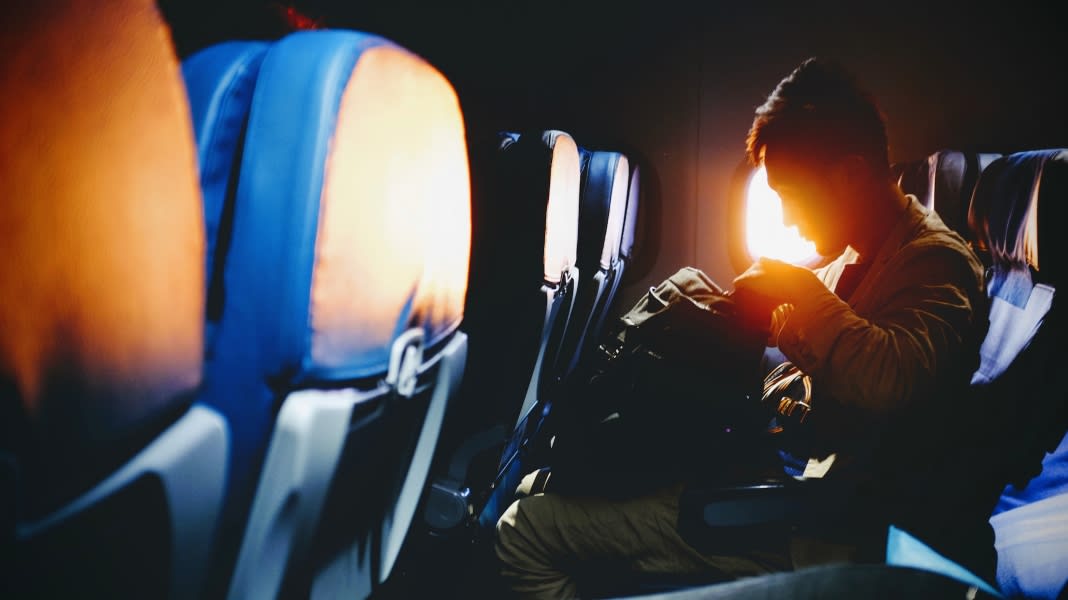
While statistically, flying is the safest form of travelling, that still doesn’t comfort some of the millions of Brits who take to the skies every year. And if you’ve never flown before and are about to board a plane, you might need some extra reassurance when you settle down into your seat.
The facts are that you’re more than likely to be struck by lightning (one in 13,000) than end up in a plane crash (one in 11,000,000). Prepare for your flight by thinking as rationally as possible. After all, airlines wouldn’t have thousands of people signing up every year to work as pilots and cabin crew if the risks were that high.
Here we compile the handiest tips for first time flyers, and reveal that flying is actually fairly straightforward, as well as a great time to relax!
“How do I get through the airport process OK?”
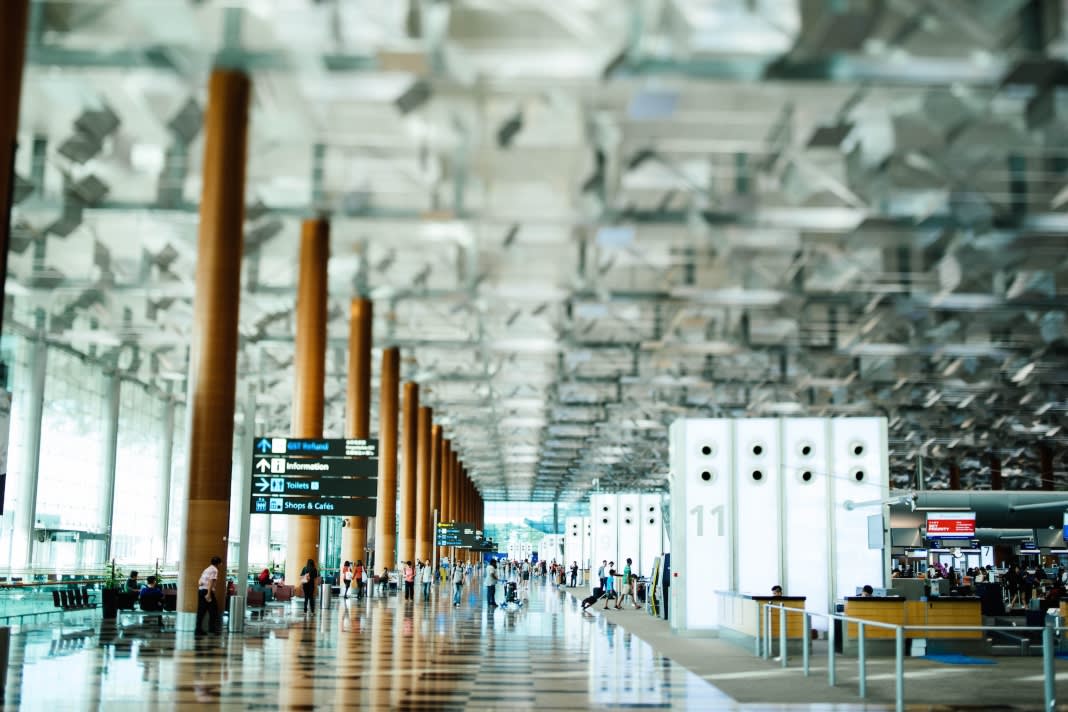
Two words. Be organised. Airport procedures for first time flyers can be busy, stressful and time consuming. Some of the most important things you need to make sure you have are
- an up-to-date passport,
- a printed out boarding card,
- no liquids over 100mls packed in see-through plastic bags,
- no contraband,
- all paperwork in order
Be kind and considerate to airport staff – and get all questions answered before your trip to the airport. Finding out how big your hand luggage can be and how early you have to be before your flight are well worth finding out well before your flight. We find bringing something like an A4 wallet very useful to store all documents in.
“I’ve heard that turbulence is scary”
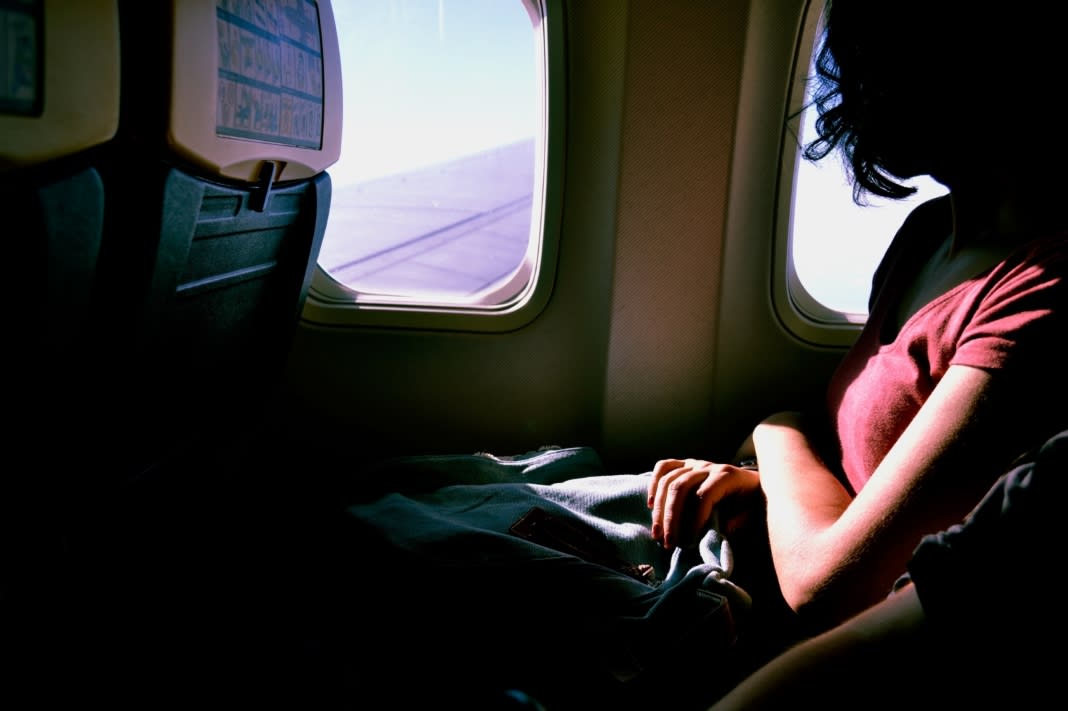
If you’ve never experienced turbulence before, it may feel scary. The plane can travel through pockets of instability that can cause turbulence, and this will feel jolty, slightly unsteady and bumpy. Most turbulence is part and parcel of a lot of flights. However, one thing is for sure – turbulence cannot flip a plane upside down, put it in a tailspin or throw it out of the sky. Pilots view turbulence as we would view bumps in the road – annoying but harmless.
However, if you really want to avoid turbulence, book your flights very early in the morning or in the evening, when the sun isn’t heating the Earth’s surface.
“I’ve been told you can get really severe earache”
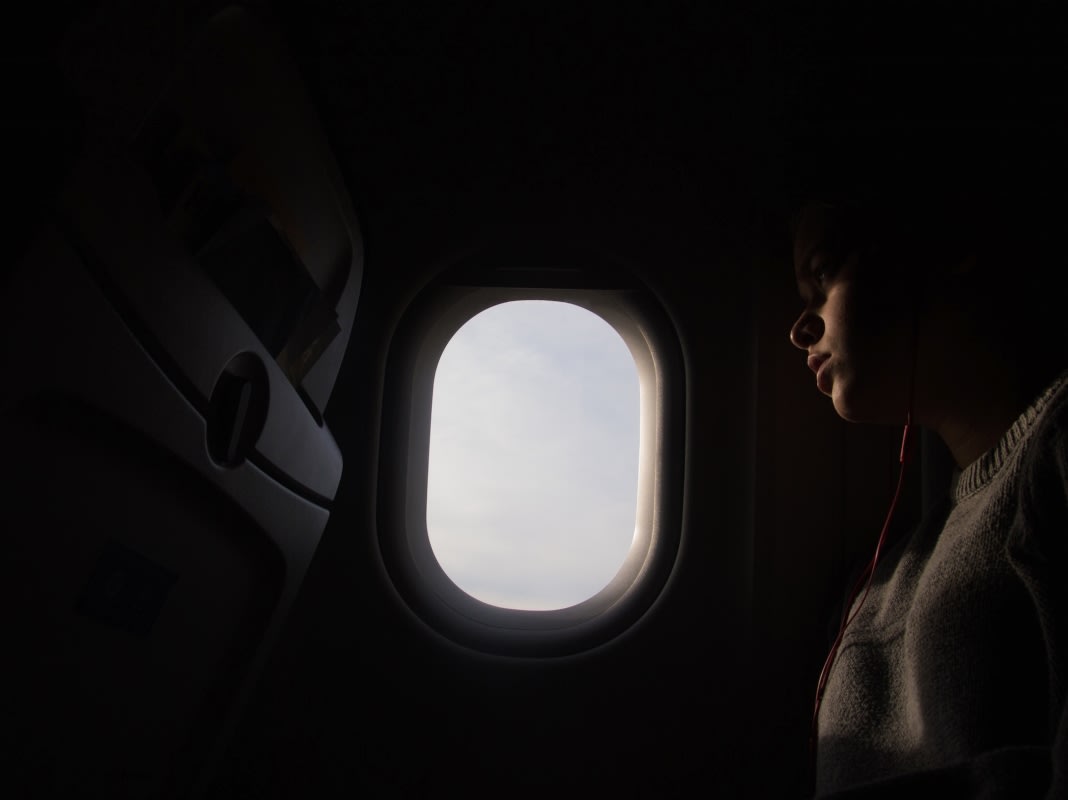
Earache as you takeoff or land is surprisingly common, but varies in terms of severity. What causes pains in the ear on a plane? It all comes down to air pressure. Normally the pressure inside and outside your ear is the same. However, the speed in which you ascend or descend on a plane can be too quick for the body to acclimatise. A lot of people’s ears “pop” which reduces this sensation. However, when your ears don’t do this, it can cause a slight pain. While we’re no ear specialists, it’s all down to some parts of the ear called the tympanic membrane and Eustachian tubes. Chewing gum or sucking on sweets is a popular way of avoiding an unpleasant sensation, the movement of the mouth and tongue help move these areas which allow air to move through the tubes to equalise the pressure. Pack these pear drops and suck on one to reduce the ache.
“I’m scared the engines will fail”
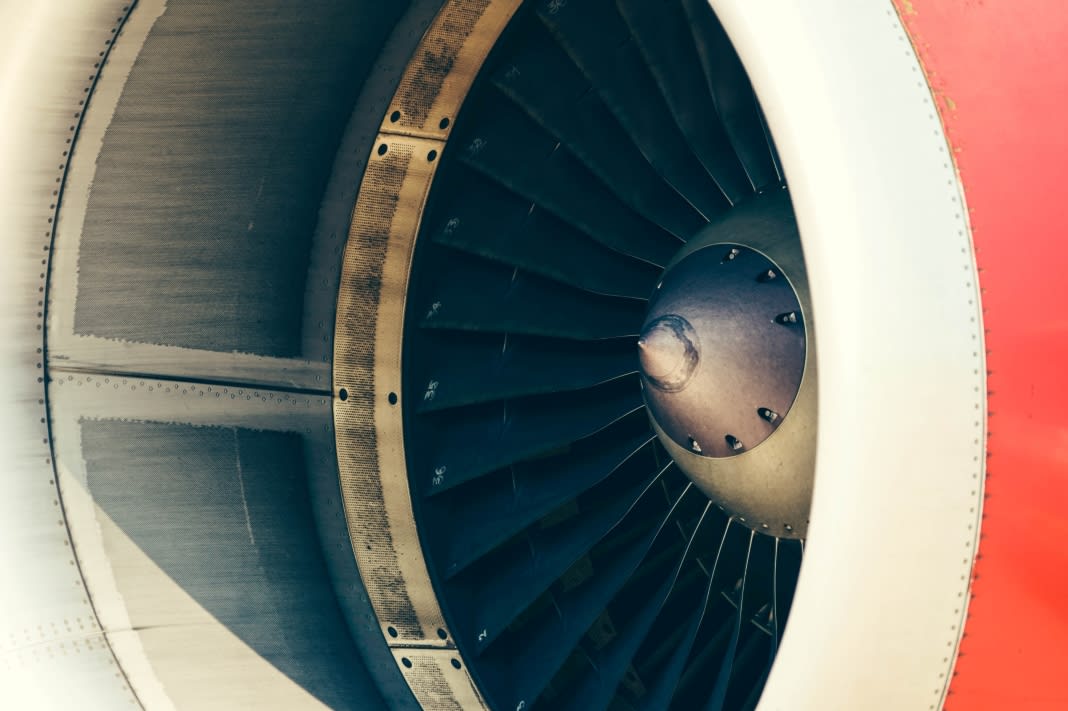
No tips for nervous flyers would be complete without a little explanation about how aircraft have been designed. Planes have two engines, and believe it or not, a plane can fly just fine if one of these engines fails. All commercial airliners can operate flawlessly with one engine.
But engines aren’t the only thing that are keeping the plane in the sky, so while you imagine worst case scenarios of engines sputtering to a halt, it won’t mean a disaster movie-style free fall.
In the incredible unlikely event of two engines not operating, a plane will simply glide. A plane can coast to a safe landing by gliding for a fair distance – this is thanks to the plane’s momentum, gravity and the design and engineering of the plane. However, the chances of both engines going kaput on a twinjet engine is less than one in a billion flight hours.
“What are the chances of the wings snapping off?”
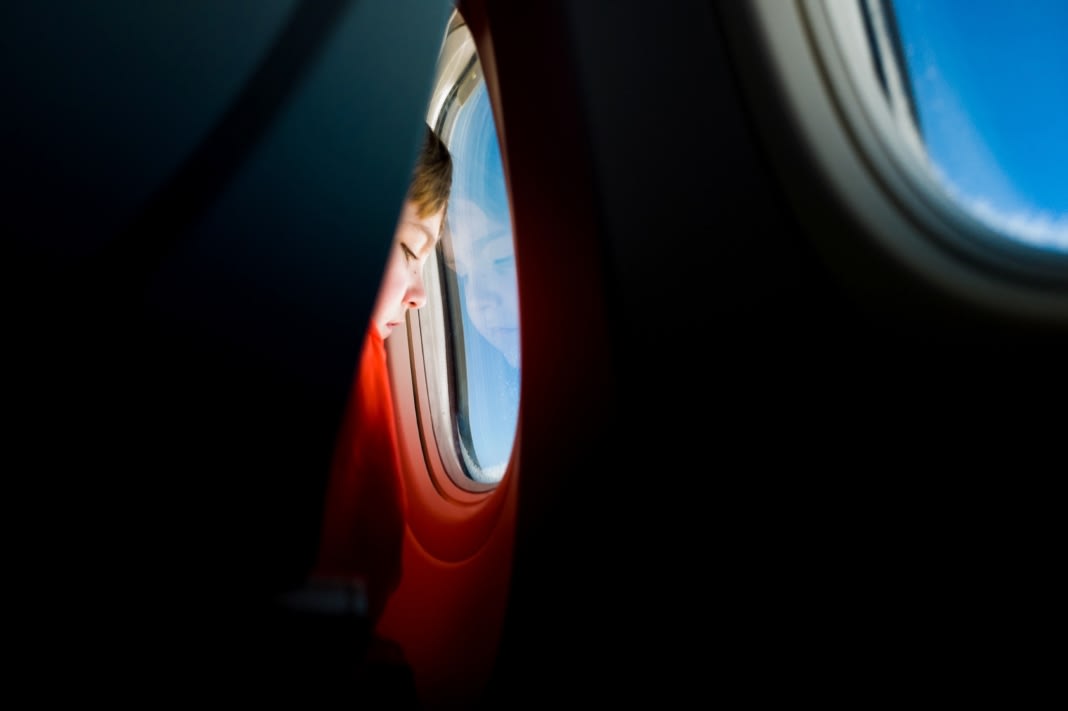
The design of every plane has undergone the most stringent of analysis. But unless you fancy taking a degree in aeronautical design, you might want to check out some aircraft testing on YouTube. It may be of an enormous reassurance to see the rigorous checks that planes goes through before being launched.
In terms of the wings, testing will involve bending the plane’s wings, sometimes up to 90 degrees – and even snapping them to see what their breaking point is. They will undergo way more pressure in these tests than they will ever experience in real life, but this demonstrates their strength. When you fly, you may see the wings wobble, bend or bounce. They have been designed to do this as a matter of aerodynamics and flexibility, so there’s no need to panic!
“Aren’t planes quite dirty, which can make travellers ill?”
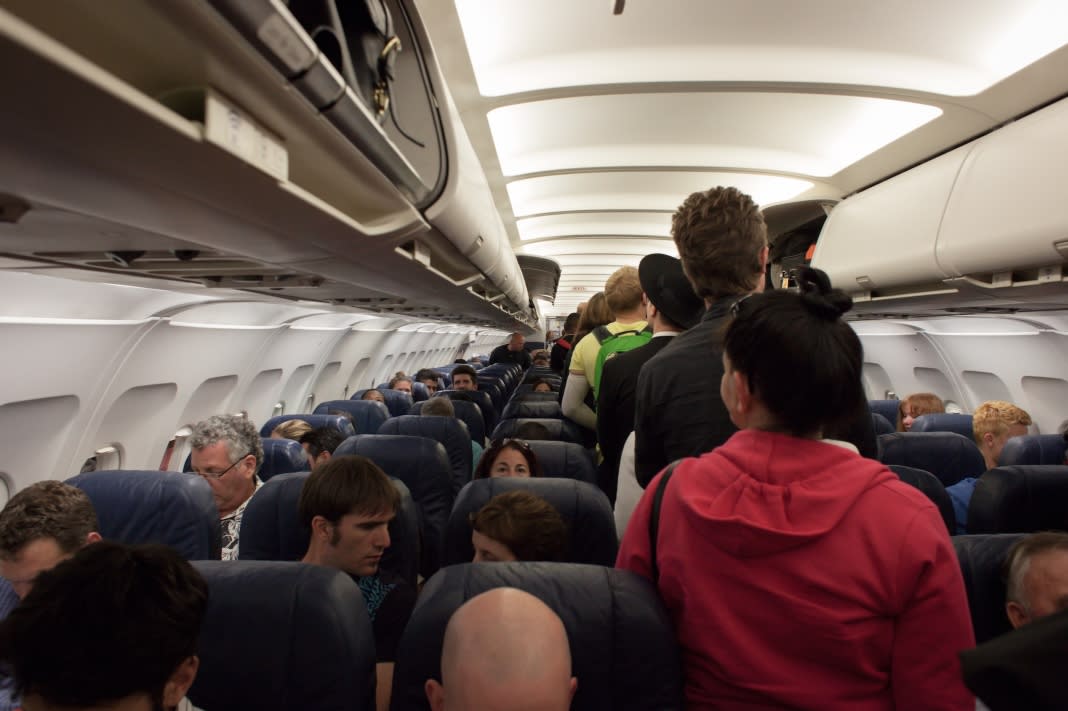
The hygiene on planes has been attracting a lot of attention in recent years, with a lot of scare stories circulating. Like any confined space, which contains a lot of people, there is a lot of scope for germs to breed, but the reality might not be as bad as the reports say. For instance, half of the air supply is replaced every two to three minutes, and the entire supply is filtered twenty to thirty times an hour with HEPA filters – which mimic those of a hospital’s intensive care unit.
However, pay attention to tray tops, toilet flush buttons, handles and sinks. Make sure you clean your hands as often as possible, and it’s a good idea to carry something like Dettol On The Go Anti-Bacterial Hand Gel, which is a great on-the-go hand sanitiser.
“How can I relax?”
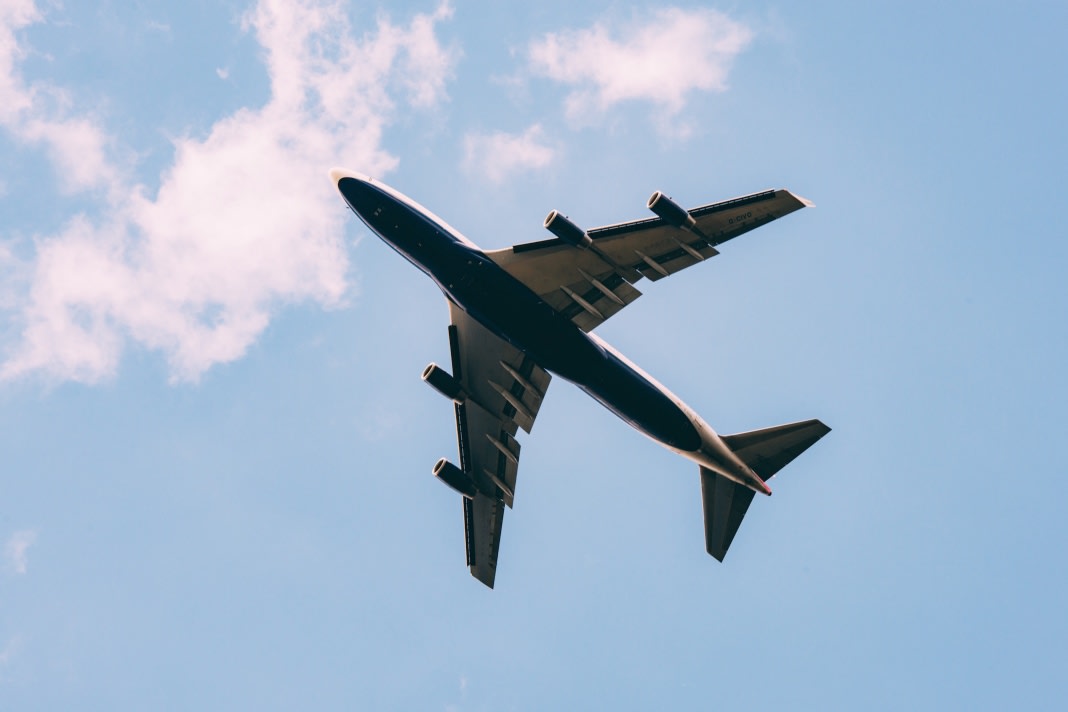
We treat all our plane journeys as the perfect me-time break. So, bring that book that you’ve been meaning to read, download the box set you’ve not had time to watch, select some movies – and you’re good to go. The best advice for first time flyers is to bring a neck pillow, some noise cancelling headphones and a blanket, and you have the opportunity to switch off and hopefully, relax!
How do you get through your time in the air? Send us your tips and ideas by getting in contact with us on Facebook, Twitter and Instagram!



